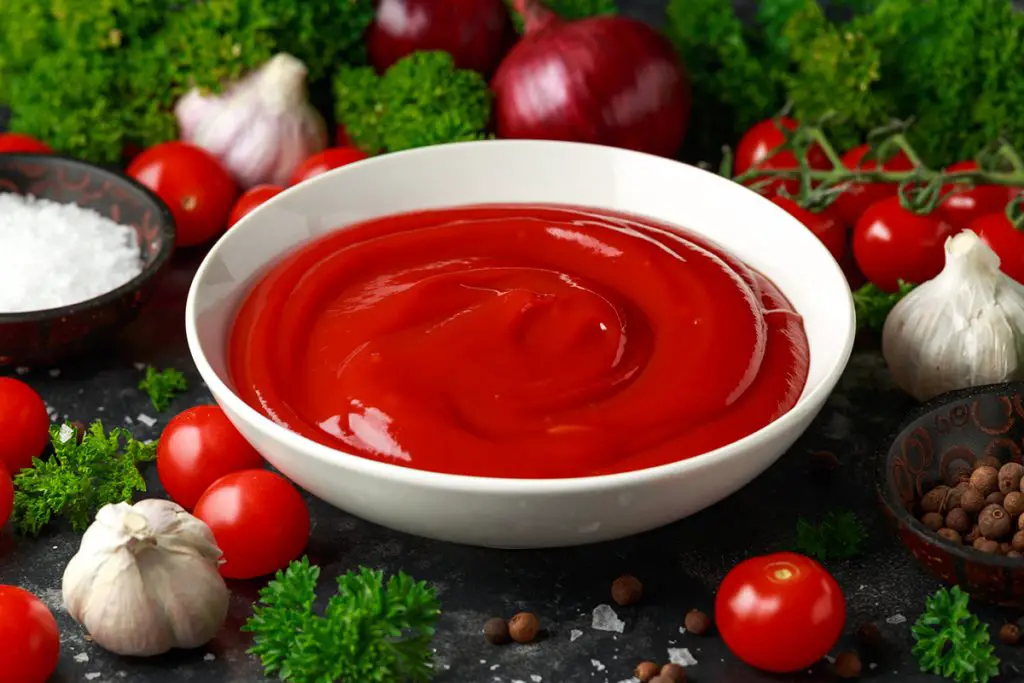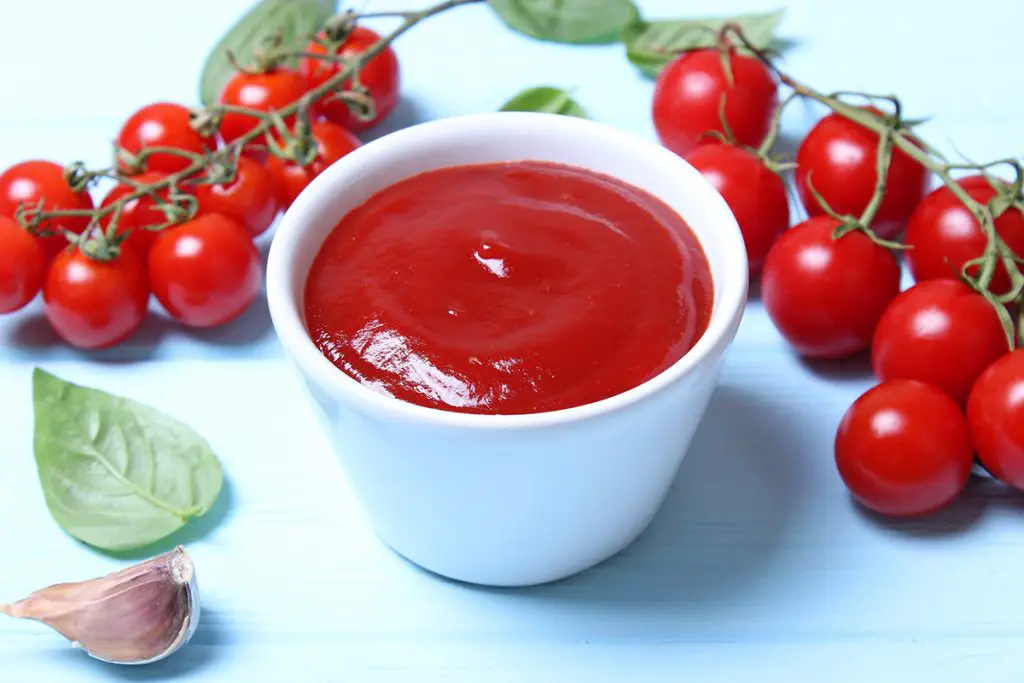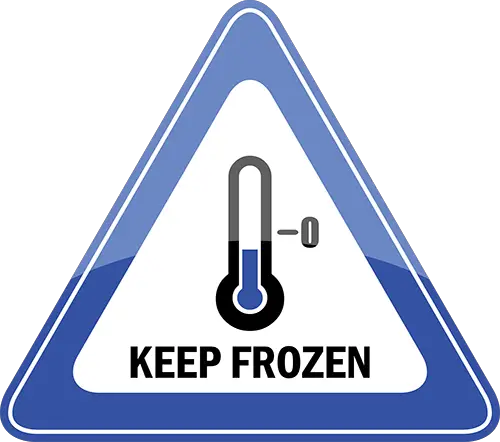Freezing Ketchup (Why, How To, & How Long?)
Do you find yourself frequently throwing out only partially-used ketchup bottles? It might be because you haven’t used them fast enough and they went bad. If you don’t use ketchup often but still want to have some on hand, you may wonder if it is safe to keep ketchup in a freezer?
You can freeze ketchup. Freezing ketchup increases its shelf life to two years beyond its best-by date. But you’ll want to freeze ketchup in small quantities, so you only have to thaw a small portion at a time when you’re ready to use it.
The rest of this article will explain:
- How to freeze ketchup safely.
- Some of the reasons why you might want to freeze ketchup.
- How long ketchup lasts.
- Gives you some tasty ideas to use up extra ketchup.
- Some of the advantages and disadvantages of eating ketchup.
Let’s get started.
Can You Keep Ketchup in a Freezer?
You can keep ketchup in a freezer for up to two years beyond its expiration date, but if it is frozen incorrectly, you can cause your ketchup to go bad prematurely. You can freeze ketchup as long as it is frozen correctly.

The Right Way to Freeze Ketchup
To get the best results out of freezing your ketchup, consider the following tips.
Don’t Freeze Ketchup In Glass Bottles
Many brands of ketchup come in glass bottles, but you shouldn’t attempt freezing ketchup while it is still in this bottle.
Glass bottles shrink in extreme cold, and ketchup expands because it is largely made of water, so if you attempt to freeze ketchup in a glass bottle, it will most likely crack or shatter. This leaves you with shards of glass and a mess in your freezer.
Consider Freezing Ketchup in Multiple Containers
If you freeze your ketchup in its plastic bottle or in a large amount, you’ll most likely end up thawing and refreezing the same ketchup over and over again, which will eventually lead to the ketchup tasting off. Dividing your ketchup bottle into small plastic containers can help you ensure that you’re only thawing the ketchup once.
Use an Ice Tray to Freeze Ketchup
Another way to ensure that you’re only thawing ketchup once is by squeezing the ketchup in your bottle into an ice tray.
I like the AmazonCommercial Silicone Ice Cube Tray (available on Amazon.com) because the tray has six large cube molds, which are the ideal size for a serving of ketchup. I also like that the tray is dishwasher safe, so if I don’t want to use it for ketchup anymore, I can run it through the dishwasher and use it for ice.
How to Thaw Ketchup Properly
To thaw ketchup, after it has been frozen, just leave the ketchup on the counter away from heat until it thaws. You may need to stir it to get it to the right texture and consistency. You shouldn’t heat frozen ketchup, as doing so will damage the ketchup and cause it to taste weird.
Alternatively, you can put the frozen container of ketchup in the refrigerator and let it thaw over several hours.
Why Freeze Ketchup?
You should freeze ketchup to extend its lifetime, so if you don’t eat ketchup often, you can freeze it to avoid spoilage and waste. You also want to freeze ketchup if you get a good deal at the grocery store and you buy it in bulk.
Ketchup is a staple condiment that is often used enough that freezing won’t be necessary, as the bottle will be used up before its expiration date. However, freezing is a good option if you rarely eat ketchup but still want to have it on hand for visitors or whatever other reason.
Additionally, some people may prefer to buy ketchup in bulk because it is cheaper.
If you find a great bulk sale, you can buy multiple bottles of ketchup and put a few in the freezer until you use up the other ones.
How Long Does Ketchup Last?
Unopened ketchup can last up to two years in your pantry. Opened bottles can last up to a year in the refrigerator. In the freezer, ketchup can last up to two years past the best-by date or the date you opened the bottle.

If your ketchup is unopened, it can last about a year past the best-by-date on the bottle. If it is opened, you should transfer the bottle to your refrigerator, where it can last a year after the first date it was opened.
How To Tell if Ketchup Is Bad
Sometimes it is difficult to tell if ketchup has gone bad. Here are some things to look out for to determine if your ketchup is still good to eat:
- Color: If the ketchup in your bottle has changed color or texture, then the ketchup is probably bad. This is especially true if it is developing dark or fuzzy patches. That would be mold, which means you definitely shouldn’t be eating it.
- Smell: If your ketchup has a sour or acidic smell, it is starting to go bad.
- Taste: Ketchup that is bad or going bad has a more sour or bitter flavor than the normal sweet taste of ketchup.
If you notice any of these elements, throw away the bottle immediately.
What To Make With Extra Ketchup
If you have extra ketchup on hand that is about to spoil, but you don’t want to go through the trouble of freezing it, you can try using it in your cooking! Here are some tasty ideas:
- Sloppy joes: Nearly all sloppy joe recipes you see will use ketchup, and they’re a quick and delicious dinner that the whole family will enjoy.
- Baked beans: If you’ve got a can of baked beans in your pantry, you can add ketchup, onions, brown sugar, and bacon to them to make them even more delicious.
- Ketchup dip: While ketchup is already a dip, you can add sour cream, Worcestershire sauce, and onion to it for a unique dipping sauce.
- Cocktail sauce: Making cocktail sauce is easy. All you need to do is combine horseradish with ketchup until you like the taste. Then serve with some shrimp.
- Meatloaf glaze: The best part of meatloaf is the glaze on top. Just spread ketchup on top of the loaf before you bake it, and it’ll thicken into a sweet glaze. Be generous with the ketchup if you have a sweet tooth.
These recipes will use up your ketchup quickly, so you don’t have to freeze it to avoid waste.
Advantages and Disadvantages of Ketchup
Many people, especially Americans, love ketchup and it’s a staple in most refrigerators. Consuming ketchup even has some advantages. Here are some to consider:
- Ketchup is a low-calorie condiment. Ketchup is made from tomatoes, vinegar, salt, pepper, and other spices, and each tablespoon (14.3 g) of it usually only has around 15 calories and no fat. Compared to other condiments, this is low-calorie, especially when you consider the 103 calories and 12 grams (0.42 oz) of fat in a tablespoon of mayonnaise.
- Adding ketchup is a way to get kids to eat foods they otherwise wouldn’t. If you have a picky kid, finding meals that they’ll eat can be a headache. However, if you put ketchup on something, they’re probably more likely to eat it.
- It tastes good. Can you imagine eating fries without ketchup? A burger? Ketchup is tasty, so if eating it makes you happy, there’s an advantage right there.
No product is perfect, though. Here are some disadvantages to eating ketchup:
- Ketchup is high in salt and sugar. A tablespoon (14.3 g) of general ketchup contains approximately 4 grams (0.14 oz) of sugar and 190 mg (0.006 oz) of sodium. This sugar content is added sugar, not the natural sugar found in tomatoes.
- Some ketchup is high in high fructose corn syrup. High fructose corn syrup can raise blood sugar and lead to obesity, diabetes, or heart disease.
- There isn’t a lot of nutritional value in ketchup. There aren’t many health benefits to eating ketchup because it doesn’t have a lot of nutrients or other benefits like fiber, protein, vitamins, and minerals.
Ultimately, ketchup is a tasty condiment that can make many foods taste better. However, being low-calorie and low-fat does not mean it is healthy, and it should still be consumed in moderation.
Conclusion
You can freeze ketchup and extend the shelf life of ketchup bottles by up to two years if you keep it in the freezer. However, most people won’t ever need to freeze ketchup because ketchup naturally has a long shelf life and is a staple condiment used frequently.
If you do need to freeze ketchup, however, now you know you can safely.



